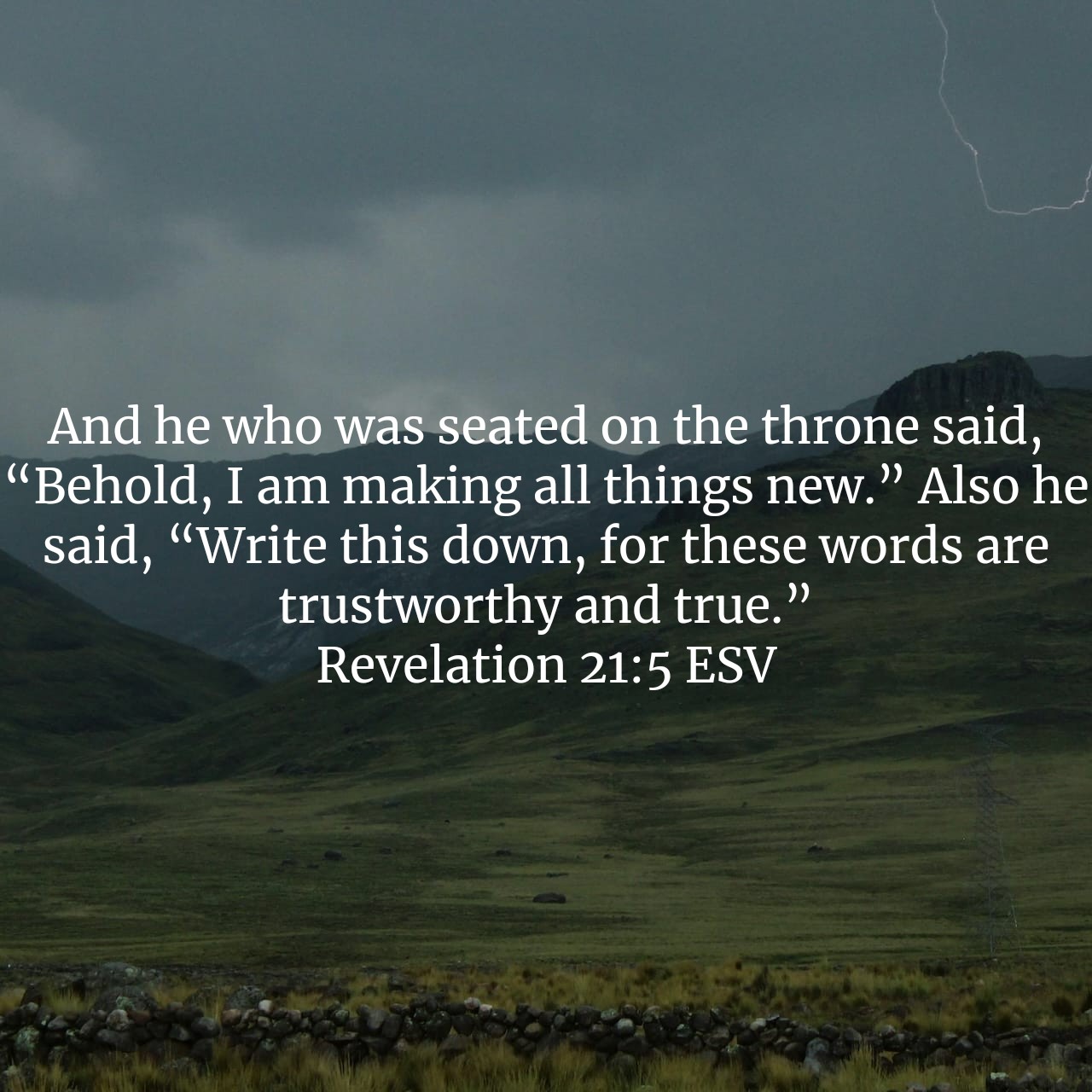Devotional 05 May 2025

When we read Revelation 21, many are quick to place its promises solely in the future, in the eternal state, after death, when all things are finally made right. But to stop there misses something vital: this passage is not just about what will be, but what already is in Christ.
The heart of this passage is not our ultimate future hope of life after physical death, it is the declaration that “the dwelling place of God is with man.” This isn’t a novelty of the last chapter of the Bible; it echoes the promises given throughout redemptive history. Leviticus 26:11–12 and Ezekiel 37:27 both promised that God would dwell among His people. And Paul tells us in Ephesians 2:22 that this promise is fulfilled now: “In him you also are being built together into a dwelling place for God by the Spirit.” We are already God’s temple (1 Corinthians 3:16). He dwells with us—not just around us, but within us.
This is why the voice from the throne can say, “Death shall be no more.” We often think of death as biological, but Scripture teaches us that death, true death, is separation from God. This is the death warned about in Genesis 2:17: “…in the day that you eat of it you shall surely die.” It is spiritual death. But now in Christ, “you were dead in the trespasses and sins… but God made us alive together with Christ” (Ephesians 2:1, 5). Jesus said, “Whoever hears my word and believes him who sent me has eternal life. He does not come into judgment but has passed from death to life” (John 5:24).
We are not waiting to be raised in some “future-only” sense, we are already raised! Romans 6:4 declares: “We were buried therefore with him by baptism into death, in order that, just as Christ was raised from the dead… we too might walk in newness of life.” This newness is not theoretical, it’s our lived experience in union with Christ.
So when Jesus says in Revelation 21:5, “Behold, I am making all things new,” He uses the present tense. He is actively making all things new—beginning with you. “If anyone is in Christ, he is a new creation. The old has passed away; behold, the new has come” (2 Corinthians 5:17). The tears, mourning, and pain spoken of are first and foremost the spiritual realities of alienation, shame, and fear that once separated us from God. Now, we stand in grace (Romans 5:1–2).
Even our suffering now—real though it is—has been transformed. It is not the end of life but part of our sanctification. Paul reminds us: “For this light momentary affliction is preparing for us an eternal weight of glory beyond all comparison” (2 Corinthians 4:17). We no longer suffer as the dying, but as the living, knowing that nothing can separate us from the love of God (Romans 8:38–39).
Walk today as someone who is already alive. Do not live waiting for the final resurrection, you are already raised with Christ. Mourn with hope, suffer with joy, and rejoice in the presence of God that now dwells in you. The new creation has already begun, and you are part of it.